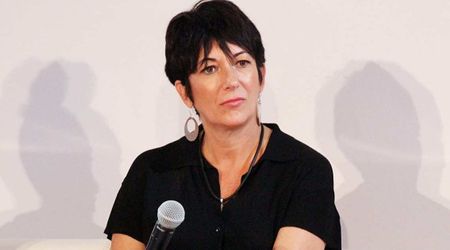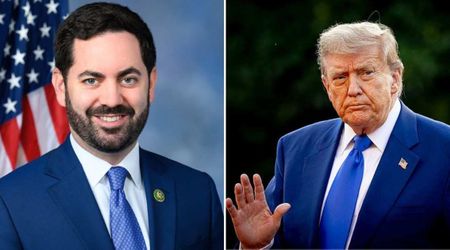Fact Check: Did Kamala Harris cause 2011 hit-and-run that left a 13-year-old girl paralyzed?

WASHINGTON, DC: A false claim linking Vice President Kamala Harris to a hit-and-run accident from June 2011 has surfaced online recently. The accusation was pretty wild—Harris allegedly was involved in an incident that left a 13-year-old girl paralyzed. Well, it turns out the whole thing was cooked up by a Russian troll farm.
According to a report dropped by Microsoft on Tuesday, the entire story was fabricated by a Kremlin-aligned group who intended to wreak chaos ahead of the upcoming presidential election.
Origin of the claim about Kamala Harris
So, where did this wild claim even come from? Microsoft’s Threat Analysis Center has identified a group called "Storm-1516", which is allegedly tied to the Kremlin. The outfit is one of several Russian disinformation networks actively working to spread fake news targeting the Harris-Walz campaign in the lead-up to November’s presidential election.

The hit-and-run story first made waves in early September on a website that posed as a local San Francisco news outlet called KBSF-TV. They even went so far as to embed a five-minute video in the article, featuring a woman talking about the supposed accident.
According to Microsoft, that woman was nothing more than a paid actor. The entire website of KBSF-TV was a sham. It had only been created on August 20 and conveniently disappeared from the internet a few days after publishing the story.
Once the fake story started circulating, it didn’t take long for CBS News to step in and debunk the whole thing. They did a deep dive into public records and news reports, finding zero evidence to back up any part of the claim.
To make things clearer, the San Francisco Police Department confirmed to CBS that there was no record of such an incident.
Not only that, but CBS also took a close look at the video that came with the article and discovered it contained random photos from unrelated news stories. In the clip, a young Black woman dramatically claimed, “I cannot remain silent anymore.”
Social media storm over fake hit-and-run story involving Kamala Harris
Despite being debunked, the hit-and-run story spread like wildfire on social media. Posts on X (formerly known as Twitter) featuring the article and video racked up more than 7 million views. It also made its rounds on Facebook, TikTok, and YouTube.
But it wasn’t just your average social media users amplifying the claim—pro-Russian channels on Telegram (a messaging app currently under investigation by European officials for criminal activity) also got in on the action.
As if one troll farm wasn’t enough, Microsoft’s report revealed that another Kremlin-linked group 'Storm-1679' has also been busy spreading false claims about Kamala Harris.
One of their videos even showed a fake New York City billboard with made-up messages about her policies.

Russia has long been known to deploy cyber groups to spread divisive content online, and this is just another example of that. Microsoft noted that these groups use media websites and social channels to spread politically charged content, staged videos, and even AI-generated propaganda.
According to their research, Russia has followed this same playbook for the last three consecutive presidential elections.
Broader disinformation campaign
It’s not just Russia pulling the strings here. Microsoft’s report also unveiled influence operations by a Chinese-linked group called Storm-1852. This particular organization has apparently been creating fake online personas posing as conservative US voters who claim they’re supporting former president Donald Trump.
But here’s the twist—they’ve also been creating content critical of Trump.

Clint Watts, general manager of the Microsoft Threat Analysis Center, pointed out how people are becoming more vulnerable to disinformation as we inch closer to the November election.
“As the election approaches, people get more heated,” he told The Associated Press. “People tend to take in information from sources they don’t really know or wouldn’t even know to evaluate.”
This isn’t the first time Microsoft has sounded the alarm on covert foreign influence operations in the US. They’ve published multiple reports over the years on disinformation campaigns leading up to US elections.
Back in August, they revealed that Iran had been targeting US institutions and political candidates with cyber attacks.
The Iranian operations included fake news sites pretending to be local outlets across different states.
Meta bans Russian state media
Meta (formerly known as Facebook) made its own move against foreign interference by banning Russian state media outlets from its platforms globally.
Late on Monday, Meta released a statement, “After careful consideration, we expanded our ongoing enforcement against Russian state media outlets: Rossiya Segodnya, RT, and other related entities are now banned from our apps globally for foreign interference activity.”
The ban comes on the heels of accusations that RT and its employees funneled $10 million through shell companies to covertly fund influence campaigns on social media platforms like TikTok, Instagram, X, and YouTube.
A US indictment revealed these shady financial dealings.
As expected, Russian officials weren’t too happy about Meta’s ban. They told the Associated Press, “Such selective actions against Russian media are unacceptable."










